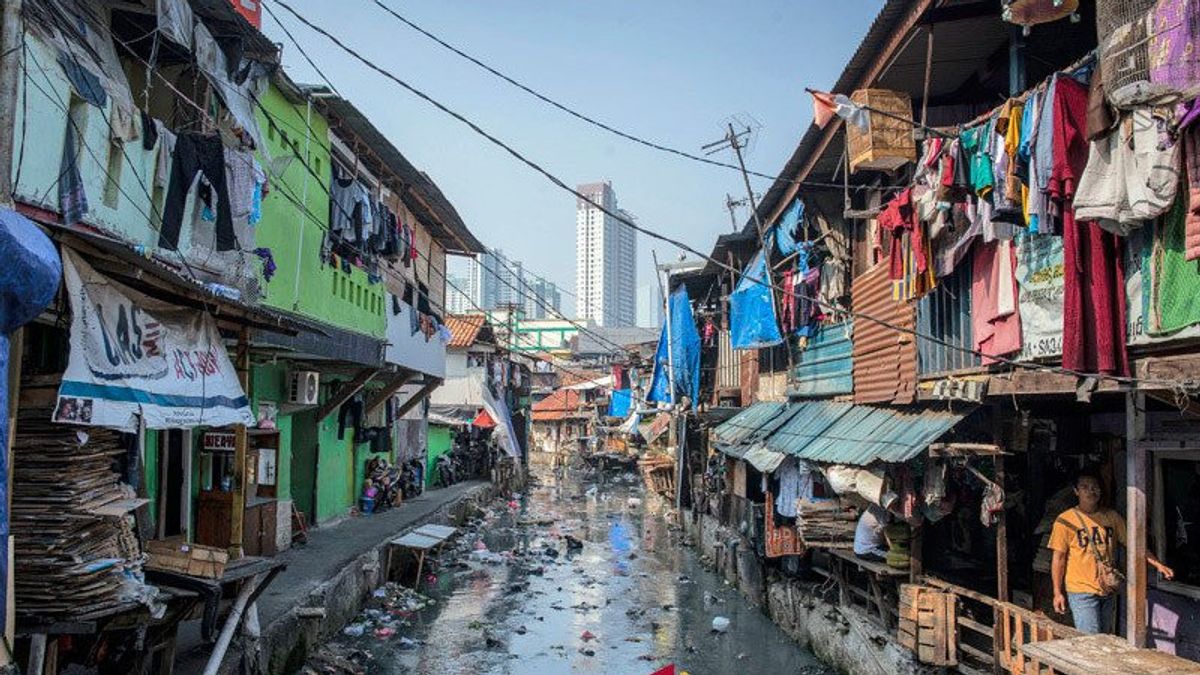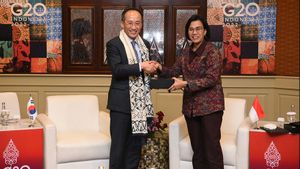JAKARTA – The government through the Ministry of Finance stated that the improvement in people's welfare as reflected in the declining poverty rate is clear evidence of economic recovery supported by the role of the state budget.
The Fiscal Policy Agency (BKF) of the Ministry of Finance, Febrio Kacaribu, said that the poverty rate continued to decline amid pressures on global commodity prices, particularly food and energy prices, which had an impact on domestic prices and people's purchasing power.
"This is a positive thing, indicating it is effective and it is necessary to continue the function of the state budget as a shock absorber", he said in a press statement on Tuesday, July 19.
According to Febrio, the Handling COVID-19 and National Economic Recovery (PC-PEN) program play a role in maintaining people's purchasing power and supporting the improvement of poverty level indicators, in addition to programs that are directly enjoyed by the community such as subsidies and social assistance.
Improvements in the poverty rate in March 2022 occur evenly across all islands in Indonesia as well as at the rural and urban levels.
Spatially, the poverty rate in urban areas decreased to 7.50 percent. Meanwhile, the number of poor people in rural areas has decreased to 12.29 percent.
The level of inequality in spending by the Indonesian population as measured by the Gini ratio slightly increased, from 0.381 in September 2021 to 0.384 in March 2022.
The increase in the Gini ratio was driven by increasing inequality in urban areas as of March 2022 to 0.403 from 0.398 in September 2021.
SEE ALSO:
On the other hand, the open unemployment rate (TPT) also improved from 6.49 percent in August 2021 to 5.83 percent as of February 2022.
"Another policy that is quite crucial in maintaining people's purchasing power is the policy to maintain the selling price of domestic energy despite the consequences of increased spending on energy subsidies and compensation", he said.
Febrio added that if global commodity price pressures are allowed to transmit to domestic prices, Indonesia's inflation is likely to be as high as inflation in many countries. The impact is an increase in the poverty level of the population.
“Therefore, the government's policy to maintain the selling price of domestic energy is very crucial to prevent the increase in population poverty. The government will also continue to improve the quality and effectiveness of spending and strengthen programs that protect the public", he explained.
For information, Indonesia's poverty rate as of March 2022 has again declined to 9.54 percent from 9.71 percent in September 2021 (March 2021: 10.14 percent).
"Efforts to maintain fiscal health are also quite crucial so that they can play an optimal role as a shock absorber that can reduce the turmoil that occurs so that the community, especially the poor and vulnerable groups, can remain protected", closed Febrio.
The English, Chinese, Japanese, Arabic, and French versions are automatically generated by the AI. So there may still be inaccuracies in translating, please always see Indonesian as our main language. (system supported by DigitalSiber.id)














